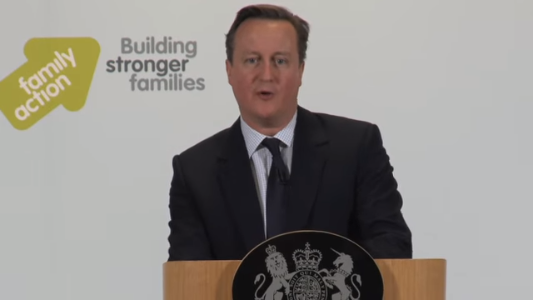Daily catch-up: David Cameron's carelessness about poverty
The Prime Minister's speech on life chances this week was important, ambitious – and deeply flawed


Your support helps us to tell the story
From reproductive rights to climate change to Big Tech, The Independent is on the ground when the story is developing. Whether it's investigating the financials of Elon Musk's pro-Trump PAC or producing our latest documentary, 'The A Word', which shines a light on the American women fighting for reproductive rights, we know how important it is to parse out the facts from the messaging.
At such a critical moment in US history, we need reporters on the ground. Your donation allows us to keep sending journalists to speak to both sides of the story.
The Independent is trusted by Americans across the entire political spectrum. And unlike many other quality news outlets, we choose not to lock Americans out of our reporting and analysis with paywalls. We believe quality journalism should be available to everyone, paid for by those who can afford it.
Your support makes all the difference.David Cameron gave an important speech on "life chances" on Monday. It was surprising and welcome that a prime minister should talk about child development and "the biological power of love, trust and security".
It was interesting, too, to hear a politician citing some of the current research in neuroscience and using Daniel Kahneman and Daniel Willingham in the knowledge versus processing debate to rebut Christine Blower:
Dismissing knowledge is frankly dismissing the life chances of our children and that is exactly what people like the General Secretary of the NUT are doing when they say, as she did last weekend, that children don’t need to learn their times tables because they can use their phone instead. That is utterly the wrong thinking.
As I noted in The Independent on Sunday, the speech had strong echoes of Tony Blair: offering a third way between two caricatured extremes, welfarism versus the free market. In talking about "the scourge of worklessness", Cameron even sounded a little like Gordon Brown. "Work is – and always will be – the best route out of poverty" is the sort of truism all three prime ministers would say.
And the announcement that the National Citizen Service will cover 60 per cent of all 16-year-olds by 2021, becoming "the largest programme of its kind in Europe", was significant.
But ... let us come to the buts. The claim that "we" are going to "tear down" 100 tower blocks and "truly consign the term ‘sink estate’ to history" is unconvincing. Jonn Elledge took it apart rather well.
The warm words about parenting were rather spoiled by an approving reference to the "Tiger Mother's battle hymn", as my colleague Jane Merrick pointed out.
As for the idea that "an ‘all must have prizes’ culture ... permeated our schools under the last government", the less said the better.
The big problem with the speech, however, was that, for all its admirable focus on dealing with the deep causes poverty, it shows a carelessness about poverty and inequality in the here and now.
For one thing, the lead minister for the “Life Chances Strategy” across government is Iain Duncan Smith. The one described as “not clever enough” by George Osborne, according to Matthew d’Ancona’s book on the coalition government. The Duncan Smith whose approach to getting rid of poverty was to get rid of the definition of poverty accepted since the 1960s? The very same.
It makes no sense to talk about tackling the causes of poverty while cutting inheritance tax, and while the cuts to tax credits are still in the spending plans for the later part of this parliament.
Cameron showed how little he understood poverty when suggested the approach of the Labour government was a "fixation on welfare – the state writing a cheque to push people’s incomes just above the poverty line". He claimed "this treated the symptoms, not the causes of poverty; and, over time, it trapped some people in dependency". Gordon Brown's working tax credits, by increasing the rewards of work, did precisely the opposite, and George Osborne proposed to cut them. It was those cuts that would trap people in dependency, and it was a good thing that they were postponed.
It makes sense for the rise in the minimum wage to come into effect first, but the cuts in tax credits have only been postponed, not abolished. They are still in the spending plans for the next four years, and will come in as Universal Credit is phased in. I have my doubts as to whether Universal Credit will ever happen. Just as I wonder how long Duncan Smith will stay in the Cabinet after the EU referendum is safely over. It is likely that the cuts in whatever form tax credits eventually take will not be as deep as currently planned. But until Osborne changes those spending plans, all the rhetoric from him and Cameron about poverty is fundamentally flawed.
Join our commenting forum
Join thought-provoking conversations, follow other Independent readers and see their replies
Comments